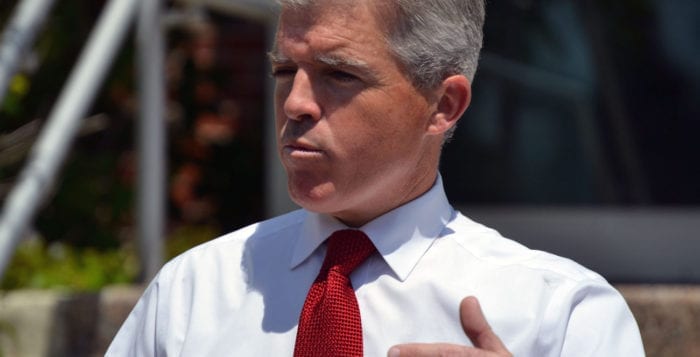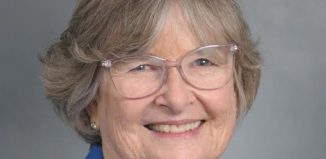Mr. Bellone Goes to Washington, Urges Federal Aid for Mental Health
During a press conference July 28 at the Long Island Council on Alcoholism and Drug Dependence, Suffolk County Executive Steve Bellone (D) and Nassau County Executive Laura Curran (D) made the case for what’s at stake for Long Island the day before heading to Washington to urge the congressional delegation to provide financial support for the area.
In the wake of the COVID-19 crisis, which claimed the lives of close to 2,000 Suffolk County residents, Bellone and Curran urged the federal government to appreciate what was at stake as residents continued to deal with the mental health consequences of a deadly virus, job losses, and ongoing fear and uncertainty.
Indeed, the 64-year-old LICADD has had a 20 percent uptick in calls as people grapple with mental health problems and anxiety, Steve Chassman, the executive director of LICADD said.
“Many people have crossed an imaginary line, where the 6 p.m. drink became the 2 p.m. drink,” Chassman said in an interview. For some, that has even developed into an “11 a.m. drink.”
Data from police have shown the number of opioid overdoses, both nonfatal and fatal, have increased dramatically since the start of the pandemic, rolling back almost two years of decreases.
At the press conference, Bellone and Curran said they believe the long road to recovery ahead for Long Islanders requires the ongoing support of services like LICADD and the Hempstead-based Family & Children’s Association.
Bellone said he and Curran were heading to Washington to make it clear “we’re talking about people’s lives and families in crisis.” These type of services, including public safety, public health, social services and mental health, are “even more important today” and will be critical as “we seek to recover from this over the next several years.”
Long Island has been battling an opioid crisis that has wreaked havoc throughout the region. The pandemic has increased the risks from opioids, among other drugs, even as Nassau and Suffolk are “still dealing with the direct impacts.”
Jeffrey Reynolds, the president and CEO of Family & Children’s Association, suggested that it “makes no sense to help save someone’s life from COVID-19 only to have them die from a fatal overdose or suicide.”
He called the current challenges among Long Island’s “darkest hour,” which is “exactly what we are seeing on the ground.”
Reynolds noted that social isolation has strained the mental health of individuals and families. In the last two weeks, Reynolds has seen three overdoses, including one of his former staff members.
Reynolds urged Washington to recognize the need for mental health services is just as critical as the need to protect people from viral infection.
“Nobody in Washington or in Albany, from either side of the aisle, would dare say, for the second, third or fourth wave of COVID that we don’t have enough money” for personal protective equipment. “This is the same. Untreated social anxiety and mental health conditions rank right up there and need our full attention.”
In an interview, Chassman added that residents have also self-medicated through other outlets, including gambling, online spending, emotional eating and sexually acting out.
“These are unhealthy coping mechanisms for fear, anxiety and stress,” Chassman said.
Reynolds offered support to the county executives as they head to Washington.
Turning to Bellone and Curran, Reynolds said, “You have our voice and our good wishes as you go forward” to make sure “these vital services” remain available to Long Islanders.







